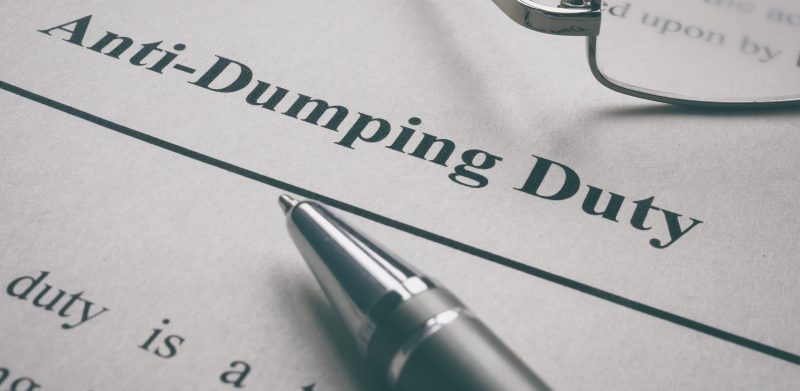
Anti-dumping measures
If a company exports a product at a price lower than the price it normally charges on its own home market, it is said to be “dumping” the product. Is this unfair competition? Opinions differ, but many governments take action against dumping in order to defend their domestic industries. (Excerpt from the WTO site)
A company often thinks it has made the deal of the century by acquiring a product at a very low price. However, before even determining whether there are applicable taxes in the importing country, the company finalizes the purchase and arranges to have the goods shipped from the foreign country to Canada. But when it comes time to make the customs declaration, the company’s customs broker notifies it that anti-dumping or countervailing duties apply. Talk about an unwanted surprise!
So instead of getting a good deal, the importer is forced to pay several thousand dollars in anti-dumping duties that can amount to more than 188% of the duty value.
In Canada, anti-dumping duties are applicable on many products, such as:
- Aluminum extrusion from China
- Container chassis from China
- Welded steel tubes from several countries
- Fasteners from China
- Stainless steel sinks from China
- Mattresses from China
- Gypsum wallboard from the United States
- Upholstered household chairs from China and Vietnam
In Canada, anti-dumping duties range from 75% to 188% on the value for duty. As for the United States, anti-dumping duties there can be as high as 300%.
Consequently, it is very important for an importer to ascertain the applicable import duties by providing their customs broker with a detailed description of the merchandise, its composition, its use and its origin. Based on this information, the customs broker will assess the customs classification and applicable taxes.
These verifications must be made prior to the purchase. In some cases, the seller may inform the foreign customer that anti-dumping duties apply to the product, but this doesn’t always happen.
Therefore, avoid unpleasant surprises and make these verifications as soon as possible. It is important to act transparently in order to enjoy a good relationship with your customs broker. A good broker will advise you that anti-dumping duties may apply and may suggest filing a Notice of Assessment with the appropriate authorities to determine whether there are applicable anti-dumping duties.
For more information, feel free to contact our consulting service.